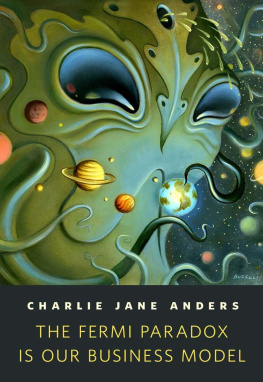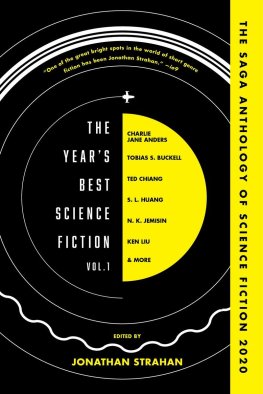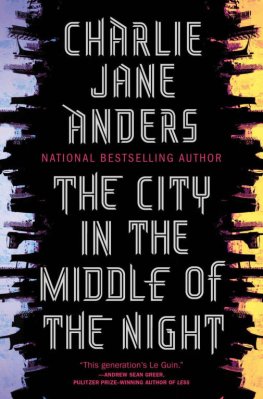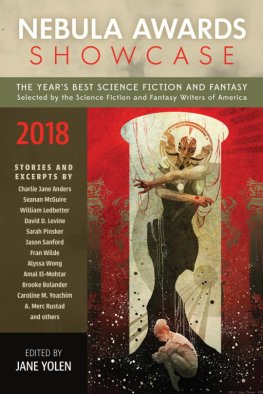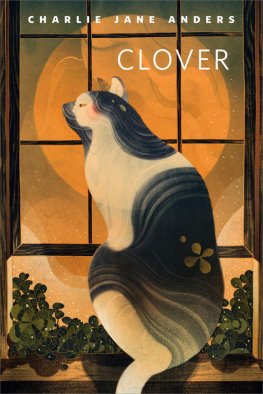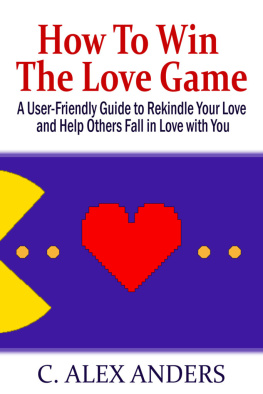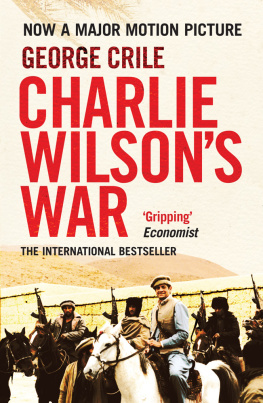Contents
Guide
Pagebreaks of the print version

The author and publisher have provided this e-book to you without Digital Rights Management software (DRM) applied so that you can enjoy reading it on your personal devices. This e-book is for your personal use only. You may not print or post this e-book, or make this e-book publicly available in any way. You may not copy, reproduce, or upload this e-book, other than to read it on one of your personal devices.
Copyright infringement is against the law. If you believe the copy of this e-book you are reading infringes on the authors copyright, please notify the publisher at: us.macmillanusa.com/piracy.
For Annalee
2020 was the worst year of my life, the same as for many other people. My father died of COVID-19, and this was part of a death toll that felt seismic, as if the landscape itself was being churned by overwhelming loss. I was coping with a cluster of family crises and struggling to finish a late book manuscript while trying to keep a dozen other commitments. And the world around me was nine kinds of messed up.
One thing got me through that hell-year: dreaming up imaginary worlds and larger-than-life people who never lived.
I was halfway through writing a young adult space fantasy trilogy, full of aliens and villains and starship battles and lots of kissing and people talking about their feelingsthe first book, Victories Greater Than Death, is out now. Whenever I got overwhelmed with doomscrolling, I could escape by hanging out with Tina, Rachael, and Elza, and imagining how they overcame villainy and survived heinous dangers by being there for each other. At night, I crawled into bed with a blank journal and scribbled a fantasy novel for grown-ups until I fell asleep with my head full of spells.
Throughout that heinous year, I was also writing the essays in this book, which explain how you can use creative writing to survive the worst things history can throw at you.
Early in 2020, I had pitched the idea for a book about how to write your way out of hard times, which could be published in real-time installments at Tor.com. I could already tell that 2020 was going to be a uniquely heart-crushing time, and I hoped these essays would help a little.
Honestly? I had no earthly clue just how awful 2020 would turn out to be, and how much I would need a space to think about the ways fiction could help me shield myself from harm. With the essays in this book, I was reminding myself, as much as anyone else, that writing can be an act of self-preservation. That creativity gives us heart and purpose and clarity and the ability to keep going. You can heal yourself just by making up your own fables.
(These essays came out of a talk that I gave at the Willamette Writers Conference and elsewhere. And this books title, Never Say You Cant Survive, is borrowed from the 1977 album of the same name by Curtis Mayfield, which is a piece of music that has brought me so much strength and inspiration over the years.)
Putting any kind of story together makes you a god in your own private universe and grants you control over a whole world inside your own mind, even when the outside world feels like a constant torrent of awfulness.
You can use stories to face up to your most debilitating fears, the way I did with Dont Press Charges and I Wont Sue (see sidebar). Or you can turn to escapism and distract yourself with swashbuckling tales of action and romance, the way I did with Victories Greater Than Death. You can also combine the two: wrapping escapist fun around a kernel of real-life politics.
People sometimes talk about escapist storytelling as a kind of dereliction of dutyas if were running away from the fight. Thats some garbage right there, because escapism is resistance. In her 1979 essay collection The Language of the Night, Ursula K. Le Guin paraphrases Tolkien: If a soldier is captured by the enemy, dont we consider it his duty to escape? If we value the freedom of the mind and soul, if were partisans of liberty, then its our plain duty to escape and to take as many people with us as we can.
Visualizing a happier, more just world is a direct assault on the forces that are trying to break your heart. As Le Guin says elsewhere, the most powerful thing you can do is imagine how things could be different What if?
Its no accident that some of the most enduring and positive communities in the real world have come out of people sharing an escapist narrative. Star Trek, Doctor Who, Star Wars, Steven Universe, She-Ra, and countless other series have created wonderful real-life fellowships. Happier, kinder worlds in fiction naturally lead people to band together, to try and create pockets of that experience in our world. And theres plenty of evidence that these fan communities feed directly into political organizing.
But thats about how escapism can be helpful for readers. Lets get back to how it can be good for you, the writer.
People will always try to control you by constraining your sense of whats possible. They want to tell you that reality consists of only the things that they are willing to recognize, and anything else is foolishness.
But you can reject their false limitations in the act of conjuring your own worldand carve out a pocket of your mind that they cannot touch, in the act of world-building. The more details you add to your world, the realer it feels in your mind. And thus, the better refuge it can become during hard times.
I know a lot of people who havent been able to keep writing these past few years. Its hard to know what the point is of making up random stories when everything is messed up. Families are still being destroyed every day by institutionalized racism, theres an endless debate over whether trans people deserve to have any rights at all, and womens healthcare is slipping backward. Many of us feel like our very personhood is up for grabs. During the bleakest moments of 2020, I found it impossible to motivate myself, and there were days when I didnt write a single word.
And yet, the more I thought of storytelling as a safe place to work through my feelings, and a sanctuary for my mind, the easier it was to put the real world away and turn to the (way cooler) world inside my head.
TURN YOUR FEARS INTO STORIES
Back in January 2017, I was scared out of my wits. I was having trouble sleeping and suffering panic attacks about the impending inauguration of Donald Trump, and the ways he would try to deny safety and equality to trans people. I couldnt concentrate on finishing The City in the Middle of the Night, until I finally decided to channel all of my anxiety into a story about my fears as a trans woman.
The result, Dont Press Charges and I Wont Sue, is a dystopian nightmare about a trans woman who gets captured by an evil NGO and forced to undergo a surreal, exaggerated cure for her transness. Its horrifying and intenseand Ive only read it aloud once, because I find the words too painful to speak. A number of other trans people have told me that they needed to lie down after reading it.
But putting my fears into a story really helped me to deal with them, and Ive heard from some cis people that this story helped them understand what trans people are facing.
When I wrote Dont Press Charges and I Wont Sue, I was going to the darkest possible place, and putting my protagonist through the most dehumanizing treatment I could imagine. I needed to face up to the absolute worst that could happen, so I felt like I understood it a little better. I also needed to imagine someone surviving the most nightmarish scenario and breaking free, even though its a dark ending.


